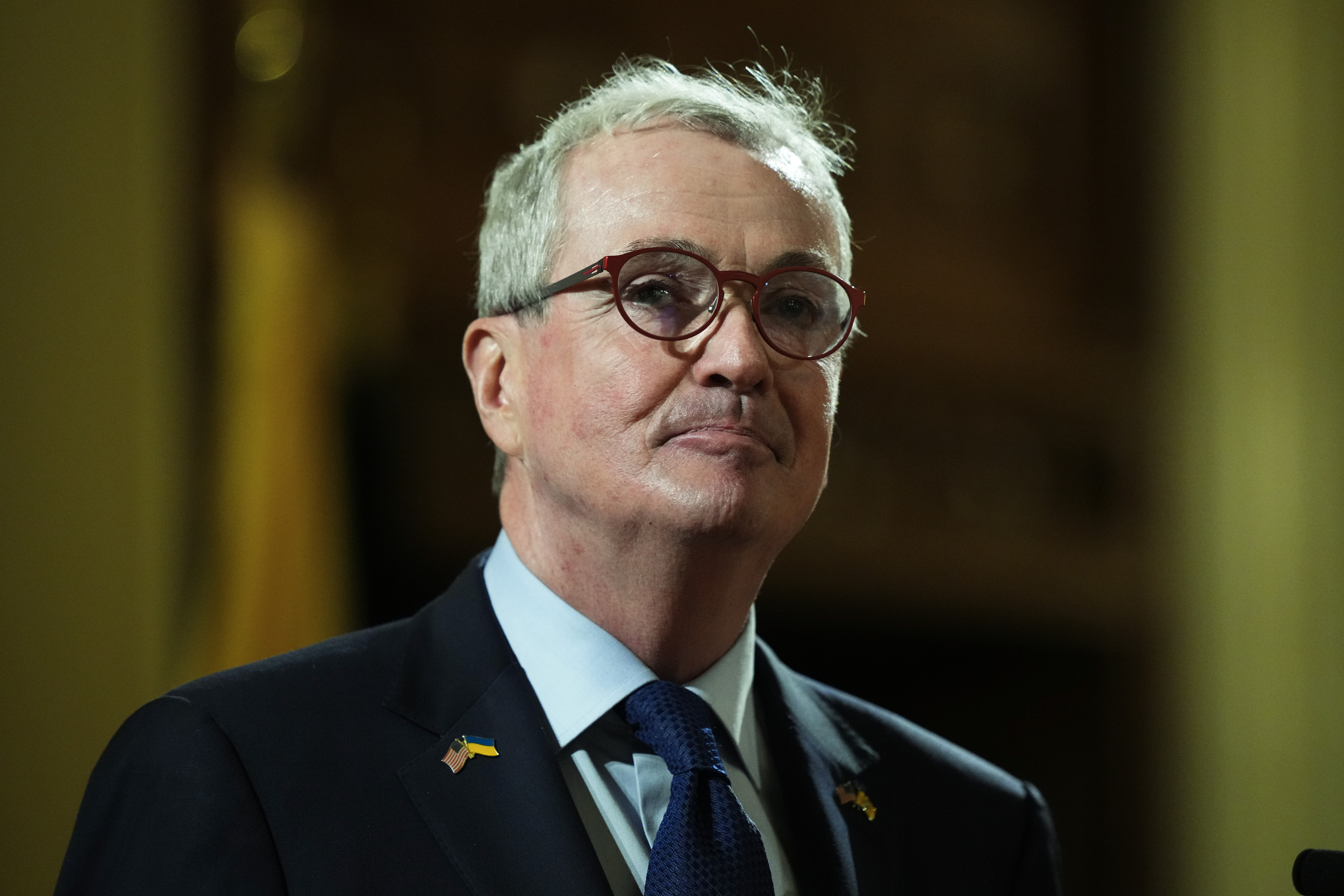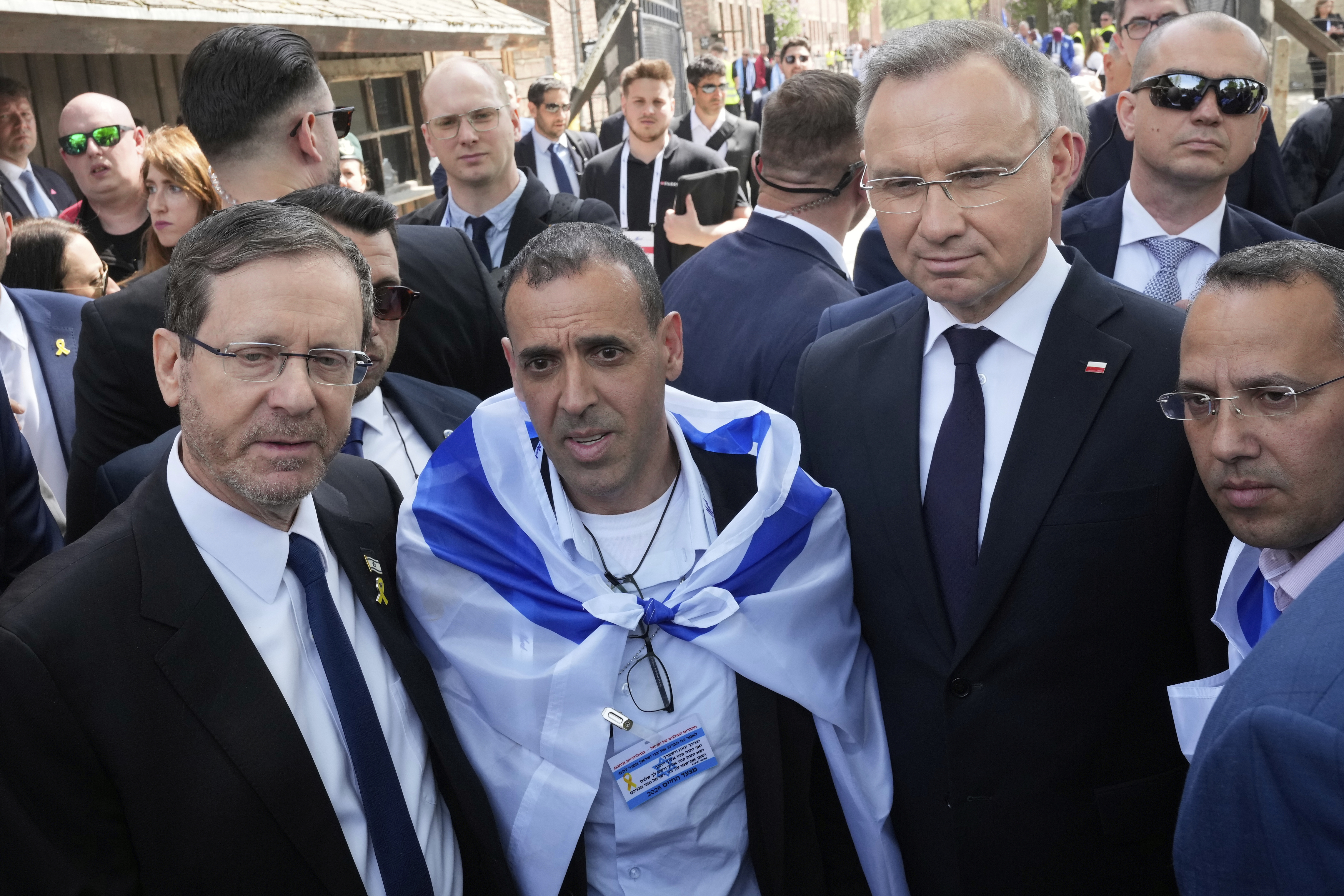Gov. Murphy in Poland During Wildfire: Right or Wrong?
While Wildfires Raged, Was Gov. Murphy Really in Poland? Unpacking the Controversy
Introduction: A Governor's Absence Sparks Questions
Did you notice something was… off this week in New Jersey? While a massive wildfire consumed acres in Ocean County, threatening homes and disrupting lives, Governor Phil Murphy was conspicuously absent. It wasn't him, but Lieutenant Governor Tahesha Way, who stepped in to sign the state of emergency declaration. So, where exactly *was* Gov. Murphy? The answer, as it turns out, lies across the Atlantic, in Poland. But is this absence justified, or a political misstep? Let's delve into the details.
The Ocean County Wildfire: A State of Emergency
The Jones Road Wildfire, as it was dubbed, quickly escalated, prompting swift action from the state. Acting Governor Tahesha Way declared a state of emergency, allowing resources to be deployed efficiently to combat the blaze. This declaration was crucial in coordinating firefighting efforts and protecting residents. But with the governor abroad, questions about leadership inevitably arose.
Murphy's Poland Trip: A March of Remembrance
So, where *was* Governor Murphy? He and First Lady Tammy Murphy were in Poland, participating in the annual International March of the Living. This poignant event brings together individuals from around the world to walk the 3-kilometer path from Auschwitz to Birkenau, the infamous Nazi concentration camps. The purpose? To honor the millions of Jews and others who perished in the Holocaust on Yom Hashoah, or Holocaust Remembrance Day.
The International March of the Living: A Powerful Symbol
The March of the Living is more than just a walk; it's a powerful symbol of remembrance, resilience, and a commitment to never forgetting the horrors of the Holocaust. Participants walk in solidarity with survivors and descendants, bearing witness to the atrocities and pledging to fight against hatred and intolerance. It is a deeply moving and impactful experience.
Yom Hashoah: Holocaust Remembrance Day
Yom Hashoah, or Holocaust Remembrance Day, is a day of mourning and reflection, dedicated to remembering the six million Jews and millions of others who were systematically murdered by the Nazi regime during World War II. It's a time for education, commemoration, and a renewed commitment to preventing future genocides.
Social Media Presence: Murphy's Connection from Afar
Despite being thousands of miles away, Governor Murphy maintained a presence on social media, posting updates about the wildfire and expressing support for the firefighting efforts. But is that enough? Does a virtual presence truly compensate for physical absence during a crisis? This is a key question in the ensuing debate.
The Role of the Lieutenant Governor: Way Steps Up
Lieutenant Governor Tahesha Way's swift action in declaring a state of emergency highlights the importance of having a strong and capable second-in-command. Her leadership during the crisis provided reassurance and ensured that the state's response was timely and effective. She demonstrated the crucial role of the Lieutenant Governor in times of emergency.
Political Fallout: Criticism and Defense
Was the Timing Right?
Murphy's decision to travel to Poland during a significant state emergency has sparked criticism from some quarters. Detractors question the timing of the trip, suggesting that his presence in New Jersey was more vital during the wildfire crisis. Was this the best time to leave the state, or could the trip have been postponed?
Defending the Decision
Supporters, on the other hand, defend Murphy's decision, arguing that honoring Holocaust victims is a crucial responsibility, and that his presence at the March of the Living sends a powerful message of solidarity and remembrance. They also point to the capable leadership of Lieutenant Governor Way and the effectiveness of the state's response to the wildfire.
The Governor's Responsibilities: A Balancing Act
Being a governor is a complex balancing act. It requires juggling numerous responsibilities, from managing state affairs to representing the state on the national and international stage. Often, difficult choices must be made, and those choices are inevitably subject to scrutiny. Is it fair to expect a governor to be physically present at every crisis, or are there times when other obligations take precedence?
New Jersey's Connection to the Holocaust: A Deep Bond
New Jersey has a large and vibrant Jewish community, and the state has a deep connection to the Holocaust. Many survivors and their descendants call New Jersey home, and the state has a strong commitment to Holocaust education and remembrance. This makes Murphy's participation in the March of the Living all the more significant.
The Importance of Remembrance: Learning from History
The Holocaust serves as a stark reminder of the dangers of hatred, intolerance, and prejudice. By remembering the victims and learning from the past, we can work to prevent future atrocities and build a more just and equitable world. Never forgetting the Holocaust is a moral imperative.
Public Perception: How Are Residents Reacting?
Public perception of Murphy's trip is likely divided. Some may view it as a dereliction of duty, while others may see it as a meaningful act of solidarity and remembrance. Ultimately, how residents perceive the situation will depend on their individual values and priorities.
The Broader Context: International Relations and Diplomacy
Governor Murphy's presence in Poland also has implications for international relations and diplomacy. By participating in the March of the Living, he demonstrates New Jersey's commitment to human rights and its solidarity with the Jewish community worldwide. This strengthens ties with Poland and other countries committed to Holocaust remembrance.
A Precedent Set?: Future Implications
This situation raises questions about the precedent it sets for future emergencies. Will governors in the future feel empowered to travel abroad during crises, relying on their lieutenant governors to manage the situation? Or will this incident lead to a reassessment of travel policies and contingency plans?
Conclusion: Weighing the Responsibilities
Ultimately, the question of whether Governor Murphy's trip to Poland was justified is a matter of perspective. While his absence during the Ocean County wildfire raised eyebrows and sparked criticism, his participation in the International March of the Living was a powerful symbol of remembrance and solidarity. The situation highlights the complex and often conflicting demands placed on elected officials, and the difficult choices they must make in balancing their responsibilities. The key takeaway is the importance of leadership, both in times of crisis and in the ongoing effort to remember and learn from the past.
Frequently Asked Questions
- Why is the March of the Living important? The March of the Living is a powerful educational program that brings people from all over the world to Poland to learn about the Holocaust firsthand and to honor the victims. It serves as a stark reminder of the consequences of hatred and intolerance.
- What is Yom Hashoah? Yom Hashoah, also known as Holocaust Remembrance Day, is a day of commemoration for the six million Jews murdered in the Holocaust. It is observed annually on the 27th day of Nisan in the Hebrew calendar.
- What powers does the Lieutenant Governor of New Jersey have? The Lieutenant Governor of New Jersey serves as the President of the State Senate and assumes the powers of the Governor when the Governor is out of state or incapacitated. They also play a role in various committees and initiatives.
- How did the state of emergency help with the wildfire response? The state of emergency allowed for the rapid deployment of resources, including personnel and equipment, to combat the wildfire. It also streamlined the process of coordinating efforts between different agencies and organizations.
- What can I do to learn more about the Holocaust and combat antisemitism? There are many resources available to learn more about the Holocaust, including books, documentaries, and museum exhibits. You can also support organizations that are working to combat antisemitism and promote tolerance and understanding.

